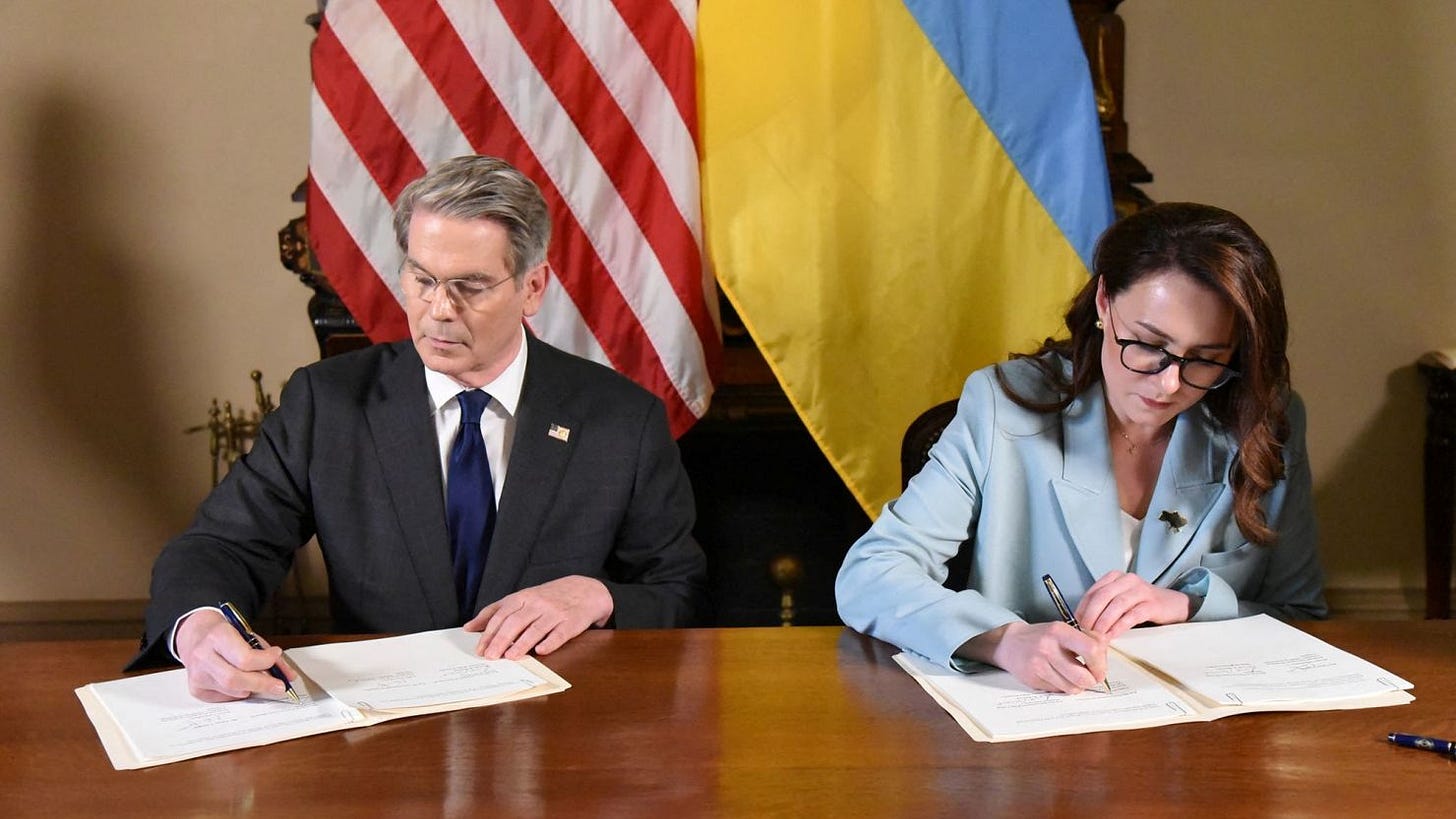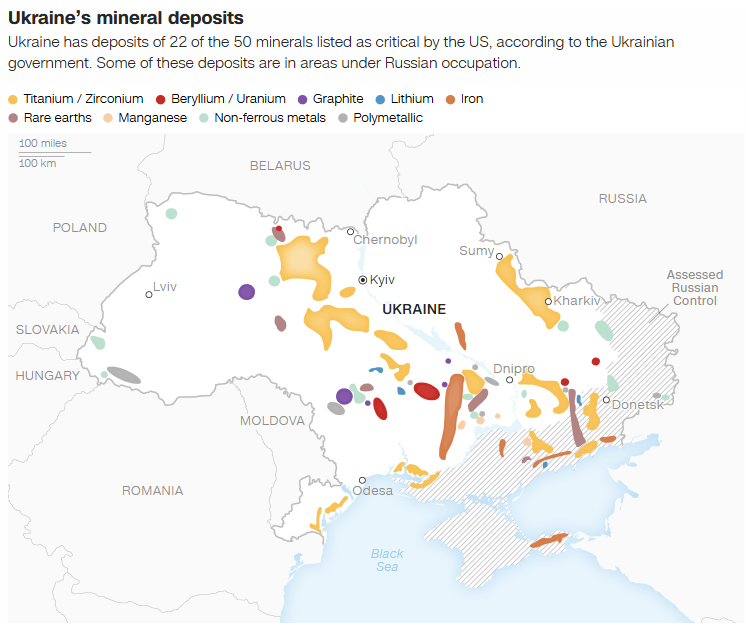🔋What’s Mine Is Yours
The US-Ukraine minerals deal is an escalation of an important new trend.
If you found this article interesting, click the like button for me! I would greatly appreciate it :)
As if you needed any more convincing that there was a shift in which sectors will be important going forward, governments are telling you. Financial services, healthcare, and technology have been the most important sectors over the last decade. Mining and energy have been left for dead, garnering no investment excitement or political attention whatsoever.
Things are starting to change. In a bipartisan effort to slowly begin de-globalization, Trump and Biden have both done their part to play “tough” with China and bring manufacturing back to the US. With Trump’s second term comes an even greater emphasis on de-globalization, re-shoring industry, and resource security.
Whether it be expanding the critical materials list, signing executive orders for deep-sea mining, or debating annexing Greenland, critical resources are not a high priority. Now, a critical minerals deal with Ukraine has been struck, furthering the campaign to secure resources for the USA for years to come. Unfortunately, the deal did not come with a negotiated cease-fire, which was hoped for by the administration. It looks like Russia and Ukraine may meet soon to discuss peace talks, but the conflict has been ongoing for three years thus far, with neither side too keen on compromise.
This deal is big for strategic resource security for the US. With strained trade relations with China, their dominance in most mineral refining is a huge concern. Ukraine holds large quantities of natural resources, including those on the US critical mineral list. There are large deposits of titanium/zirconium, rare-earths, battery metals, uranium, and more.
There are arguments on both sides about whether this is good or bad for each country. For those critical of Trump, he initially wanted Ukraine to pay back the US for its military aid provided, but that is not the case now. It does suggest that new military support from the US will count as “investment” in this military deal.
Essentially, the deal says that the US has preferential rights to mineral extraction, but Ukraine keeps the power over investment decisions. Some suggest that, given Trump’s critique of Zelensky/Ukraine, the verbiage that Russia was the aggressor was a loss for Trump and gives some assurance in the sovereignty of Ukraine.
This isn’t some magic boom for the US, as it doesn’t cover any current mining developments in the country. The US will only get to stick its hands in new mining investments and operations. While executive orders allocate funding for new projects, this is a step bigger in the fight for new natural resource supply chains. If Trump makes any moves on Greenland or continues the trade war with China, these could be even bigger events in the natural resource space.
Other countries like the Congo are looking to get in on the action. The Congo has significant cobalt and copper reserves and is looking to strike a deal with the US as well. Things are also complicated there, with conflict with Rwanda and many mining assets owned by China. Trump’s executive order is an attempt to reduce permitting delays and spur domestic mining operations in the US, but there are still challenges to sourcing these resources internally.
Ultimately, mining and energy will likely perform better than they have in the coming decade with a restructuring of global trade and/or continuing de-globalization trends. Instead of doing it the easy way and shipping Neodymium from China, the US has to secure mineral rights, build out mines, build processing facilities, and potentially even secure trade between these new trading regimes with military. This adds cost, time, inefficiency, and more centralized control over the economy. Until next week,
-Grayson
Leave a like and let me know what you think!
If you haven’t already, follow me at TwitterX @graysonhoteling and check out my latest post on notes.
Socials
Twitter/X - @graysonhoteling
LinkedIn - Grayson Hoteling
Archive - The Gray Area
Let someone know about The Gray Area and spread the word!
Thanks for reading The Gray Area! Subscribe for free to receive new posts and support my work.



